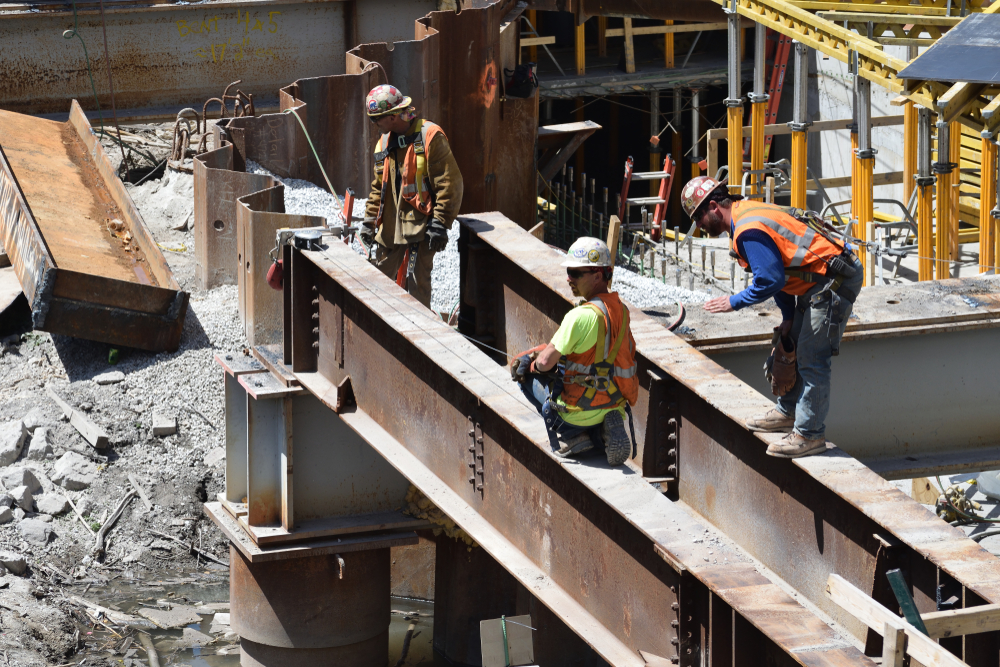An iron worker on a construction site is involved in the fitting and installation of iron and steel frames for the built environment. Your career as an ironworker can see you work as a contractor or a full-time employee. Now let’s take a look at what a career as an ironworker actually involves and where your career as an iron worker can take you.
Working as an Ironworker
Your career as an ironworker will vary depending on the type of construction project you are working on and in the environment in which you are working. Generally, an iron worker would be involved in doing the following:
- Installing columns, girders and structures made from iron and steel
- Insuring fitting and installation is done according to the agreed specifications and plans
- Working with machinery and machine operators to ensure that all work is carried out safely and to deadline
- Cutting, abrading and welding metal structures to fit the job specification
- Reinforcing concrete structure with iron and steel rods
- Having a detailed knowledge of various metals what suitabilities they have for each particular job.
Career Path
Iron workers work with heavy materials and require good communication and the ability to work well with other trades and disciplines, some of the trades and disciplines that you could expect to work alongside in your career as an ironworker include:
- Foreperson
- Site manager
- Construction labourer
- Welder
- Heavy equipment operator
- Health & Safety
- HSE Officer
- Site clerk
- Construction plant fitter
- Steel fixer
- Forklift driver
Professional Qualifications
One of the most common routes is via apprenticeships, where ironworkers learn the role ‘on the job’ with an iron work or construction company and also study for their qualifications in college over 7 phases of work and college based education. Once you have established yourself as an ironworker, you can apply for membership of professional bodies which will enable you to build a strong professional network. Due to innovation within this sector, constant training and upskilling in new methodologies, materials and equipment is advised if you are to have a successful career as an ironworker. Your will also need to be very aware of Health & Safety and have the necessary certification.
How your Career can Develop
As an ironworker you can choose to specialise in particular areas during your career as an ironworker, so you will need to upskill and earn any necessary certifications. You can specialise in areas such as domestic or residential iron work, industrial construction work and partitioning, decorative or ornate iron work or indeed, other construction projects. Ultimately you can build up your own client base and start your own iron work service or contracting business or work with large firms or contractors that would require your services as an ironworker.

